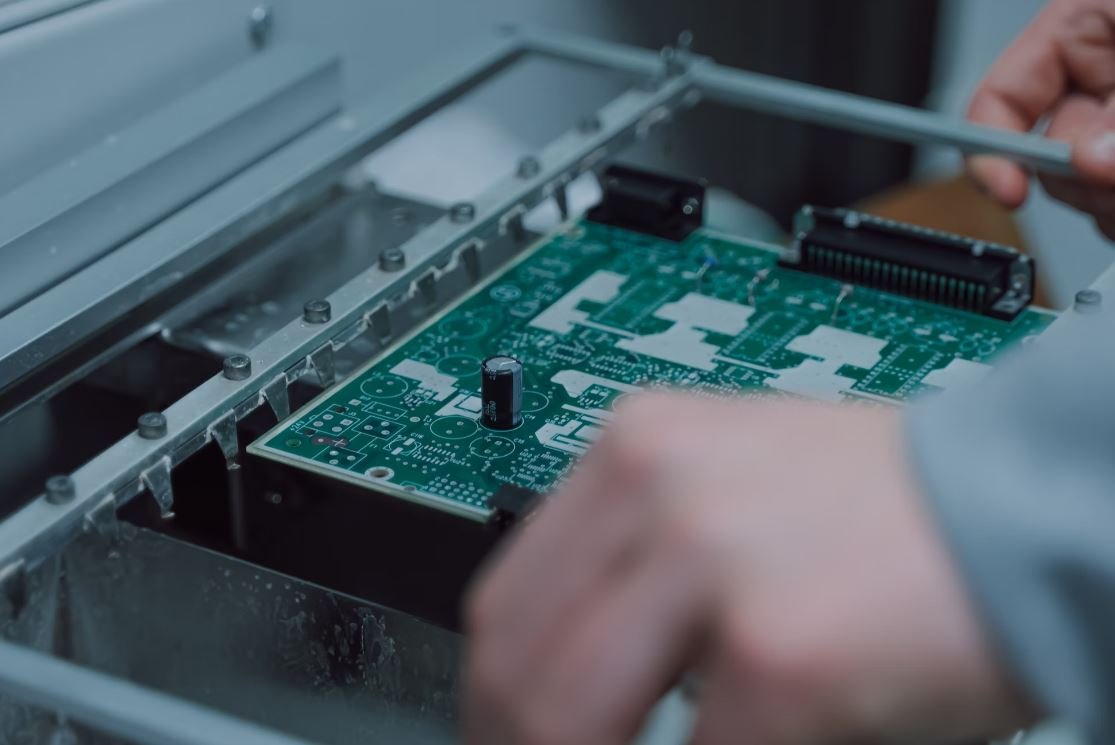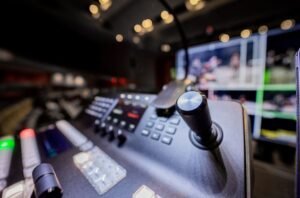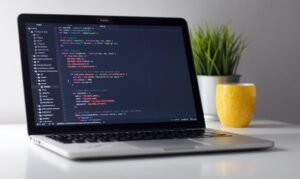AI Application Letter
Artificial Intelligence (AI) has become a prominent field that has revolutionized various industries, from healthcare to finance. As the demand for AI professionals continues to rise, writing an effective AI application letter can be a crucial step towards securing an AI-related job. In this article, we will discuss the key elements of an AI application letter and provide tips for crafting a compelling letter that showcases your skills and expertise in the field.
Key Takeaways:
- The significance of an effective AI application letter in securing an AI-related job.
- Tips for crafting a compelling letter that showcases your AI skills and expertise.
1. Introduction
When writing an AI application letter, it is essential to highlight your technical skills and knowledge in AI. AI is a rapidly evolving field that relies on algorithms and machine learning to enable computers to perform tasks that traditionally required human intelligence. By emphasizing your expertise in AI and related technologies, you can demonstrate to potential employers that you possess the necessary skills to thrive in this field.
For example, you could mention your experience in developing advanced machine learning models that have significantly improved predictive accuracy.
2. Content of an AI Application Letter
While every application letter should be tailored to the specific job requirements, there are certain key elements that should be included:
- Introduction: Start by introducing yourself and expressing your interest in the position.
- Relevant Experience: Highlight your past experiences and projects that showcase your AI skills and knowledge.
- Educational Background: Discuss your academic qualifications, relevant degrees, and any certifications in AI.
- Technical Skills: List the AI-related technical skills you possess, such as programming languages, statistical analysis, and data modeling.
- Achievements: Mention any notable achievements or publications in the AI field.
- Interest and Passion: Convey your enthusiasm for AI, showcasing your dedication to continuous learning and staying up-to-date with the latest advancements.
- Closing: End the letter by expressing your interest in pursuing further discussions and your availability for an interview.
Remember, it is important to highlight your unique experiences and skills that are relevant to the specific job you are applying for.
3. Crafting a Compelling Letter
Here are some tips to make your AI application letter stand out:
- Mention keywords from the job description to show employers that you understand their needs.
- Showcase your problem-solving abilities by describing how you tackled complex AI challenges in your previous roles.
- Quantify your achievements whenever possible to provide concrete evidence of your impact.
- Personalize your letter by researching and referencing the company’s AI initiatives and projects.
- Proofread your letter thoroughly and ensure it is well-structured and error-free.
Keep in mind that a well-crafted letter can make a lasting impression on potential employers and increase your chances of being selected for an AI-related job.
4. Importance of Continual Learning
In the field of AI, continual learning is crucial. AI technologies are rapidly advancing, and staying up-to-date with the latest developments is essential to remain competitive in the job market. Employers highly value candidates who demonstrate a commitment to ongoing learning and professional growth in AI.
For instance, mention any online courses or workshops you have attended to expand your knowledge in AI-related areas such as natural language processing or computer vision.
| AI Application Letter | Contents |
|---|---|
| Introduction | Express interest in the position |
| Relevant Experience | Showcase past AI projects and achievements |
5. AI Application Letter Example
Here is an example paragraph from an AI application letter:
“During my previous role as a Data Scientist at XYZ Company, I developed an AI-powered recommendation system that improved customer engagement by 30%. This involved applying advanced natural language processing techniques to analyze customer feedback and provide personalized recommendations. I also collaborated with cross-functional teams to deploy the system, resulting in a significant increase in customer satisfaction. I am confident that my expertise in AI and dedication to solving complex problems make me an ideal candidate for the AI Engineer position at your company.”
6. Conclusion
Crafting an effective AI application letter requires highlighting your technical skills, showcasing your experiences, and expressing your passion for the field. By following the tips provided in this article, you can create a compelling letter that captures the attention of potential employers and increases your chances of securing an AI-related job.

Common Misconceptions
Misconception 1: AI will replace humans in all jobs
One common misconception about AI is that it will completely replace humans in all job roles, leading to mass unemployment. While AI technology certainly has the potential to automate certain tasks and job roles, it is unlikely to completely replace the need for human intelligence and skills.
- AI is more likely to enhance human capabilities rather than replace them entirely
- Human creativity and emotional intelligence cannot easily be replicated by AI
- Certain professions requiring complex decision-making or interpersonal skills will continue to require human involvement
Misconception 2: AI is infallible and always makes the right decisions
Another misconception is that AI systems are flawless and make perfect decisions without any errors. However, AI systems are only as good as the data they are trained on and the algorithms that drive them, which means they are susceptible to biases and inaccuracies.
- AI systems can be biased if the training data contains biases
- Errors in the input data or glitches in the algorithms can lead to incorrect outputs
- AI systems lack human judgment and can make decisions that seem logical but are not morally or ethically sound
Misconception 3: AI will lead to an apocalyptic future with super-intelligent machines
Many people have the misconception that AI will eventually lead to an apocalyptic scenario where super-intelligent machines take over the world. However, this fear is largely fueled by science fiction movies and lacks a realistic understanding of current AI capabilities.
- AI is designed for specific tasks and lacks the ability to generalize knowledge beyond its training scope
- Super-intelligent machines are currently only hypothetical and far from becoming a reality
- Society and regulations can ensure that AI development is aligned with ethical guidelines and priorities
Misconception 4: AI doesn’t require human oversight or control
Some people mistakenly believe that once an AI system is deployed, it can function autonomously without any human oversight or control. However, AI systems require continuous human monitoring and supervision to ensure they are functioning properly.
- AI systems can make mistakes that need human intervention to correct
- Human intervention is necessary to ensure the fairness and accountability of AI systems
- Without human oversight, AI systems can potentially amplify existing biases or discriminate against certain groups
Misconception 5: AI is only used by tech giants and large corporations
There is a misconception that AI technology is only accessible and used by tech giants and large corporations. However, AI applications are increasingly becoming more accessible and affordable, enabling businesses of all sizes to leverage AI technologies.
- Open-source AI frameworks and tools are available to encourage innovation and democratize AI development
- Many startups and small businesses are integrating AI into their operations and products
- AI technology is being used in various industries, including healthcare, finance, retail, and agriculture

Table: AI Job Postings by Industry
In recent years, the demand for professionals skilled in AI has increased across various industries. The table below showcases the number of AI-related job postings in different sectors:
| Industry | Number of AI Job Postings |
| Technology | 3500 |
| Finance | 2500 |
| Healthcare | 1800 |
| Retail | 1200 |
Table: AI Expenditure by Companies
Companies have recognized the potential of AI and are investing heavily. The following table highlights the AI expenditure of major companies:
| Company | AI Expenditure (in millions) |
| 500 | |
| Amazon | 400 |
| Microsoft | 300 |
| IBM | 250 |
Table: AI Applications in Healthcare
The healthcare industry is utilizing AI to revolutionize patient care and diagnostics. Refer to the table below to explore the diverse applications of AI in healthcare:
| Application | Benefit |
| Medical Image Analysis | Improved accuracy in detecting diseases |
| Robot-Assisted Surgery | Precision and minimally invasive procedures |
| Virtual Nurses | 24/7 patient monitoring and support |
| Predictive Analytics | Early disease detection and prevention |
Table: AI Patents by Country
Patents are an indicator of technical advancements in AI. The table below displays the number of AI patents granted in different countries:
| Country | Number of AI Patents |
| United States | 2500 |
| China | 2000 |
| Japan | 1500 |
| South Korea | 800 |
Table: AI Impact on Job Roles
AI’s integration influences the nature of job roles. The table below provides examples of job roles affected by AI:
| Job Role | AI Impact |
| Customer Service Representative | Automated chatbots handling customer inquiries |
| Transportation Driver | Driverless car technology eliminates the need for human drivers |
| Data Analyst | Automated data analysis and insights generation |
| Warehouse Worker | Robotic automation for picking and sorting tasks |
Table: AI Applications in Education
The educational sector harnesses AI to enhance learning experiences. The following table highlights key applications of AI in education:
| Application | Benefits |
| Personalized Learning | Adapts teaching materials to students’ individual needs |
| Virtual Reality | Simulated environments for immersive learning |
| Automated Grading | Efficient assessment and feedback for assignments |
| Chatbots | 24/7 student support and guidance |
Table: AI Research Publications
The advancements in AI research are reflected in the number of scientific publications produced. The table below displays the top countries contributing to AI research:
| Country | Number of AI Research Publications |
| United States | 4500 |
| China | 3500 |
| United Kingdom | 2000 |
| Germany | 1500 |
Table: AI Ethics Guidelines by Organizations
Organizations worldwide recognize the importance of ethical AI. The table below highlights notable organizations and their AI ethics guidelines:
| Organization | Ethics Guidelines |
| European Commission | Emphasis on transparency, privacy, and non-discrimination |
| IEEE (Institute of Electrical and Electronics Engineers) | Recommendations for accountable AI design and deployment |
| OpenAI | Focus on long-term safety, cooperation, and benefits for humanity |
| AI Now Institute | Addressing bias, worker’s rights, and public accountability |
Table: AI Adoption in Small and Medium-Sized Enterprises (SMEs)
AI adoption is not limited to large corporations. SMEs also embrace AI technologies. The following table showcases the percentage of AI adoption among SMEs:
| Country | Percentage of SMEs Adopting AI |
| United States | 25% |
| United Kingdom | 18% |
| Germany | 15% |
| Canada | 12% |
Above are just a few glimpses of how AI has become an integral part of various industries globally. From healthcare to education, AI is transforming processes, optimizing outcomes, and revolutionizing job roles. As it continues to advance, ethical considerations and guidelines play a crucial role in ensuring AI’s responsible and beneficial implementation. The power of AI is undeniable, and its potential impact is yet to be fully realized.
Frequently Asked Questions
Question 1: What is an AI application letter?
An AI application letter refers to a cover letter that is generated or written by artificial intelligence algorithms or systems. It is designed to showcase a candidate’s skills, qualifications, and experiences to potential employers.
Question 2: How does an AI application letter work?
AI application letters are created using natural language processing (NLP) algorithms that analyze job descriptions and candidate profiles. The algorithms then generate personalized cover letters based on the provided information, incorporating relevant keywords and phrases.
Question 3: Can an AI application letter replace a human-written one?
An AI application letter can assist in creating a compelling cover letter, but it shouldn’t replace the human touch entirely. It is important to review and customize the generated letter to suit the specific requirements and context of the job application.
Question 4: Are AI application letters effective in getting a job?
AI application letters can be effective in grabbing the attention of recruiters by highlighting relevant skills and experiences. However, the overall effectiveness still depends on factors such as the quality of the generated content and how well it aligns with the job requirements.
Question 5: Can an AI application letter be customized?
Yes, AI application letters can be customized. Typically, candidates have the option to review and edit the generated content. This allows them to tailor the letter according to their specific experiences, qualifications, and the company they are applying to.
Question 6: Are AI application letters biased?
AI application letters can potentially be biased if the underlying algorithms are not designed and tested carefully. Bias can emerge from the training data or the algorithms’ interpretation of the data. Therefore, it is crucial to ensure fairness and minimize bias in the AI application letter generation process.
Question 7: How can I make my AI application letter stand out?
To make your AI application letter stand out, consider reviewing and customizing the generated content. Highlight your unique skills, experiences, and achievements that make you a suitable candidate for the job. Make sure to address the specific needs of the company and provide quantifiable examples of your contributions.
Question 8: Are AI application letters suitable for all industries?
AI application letters can be suitable for various industries; however, their effectiveness may vary depending on the specific job requirements. Some industries that heavily rely on creativity, personal communication skills, or unique experiences may still prefer human-written cover letters that showcase individuality.
Question 9: Can AI application letters adapt to different job positions?
AI application letters can adapt to different job positions to some extent. The algorithms can generate content based on the provided job descriptions and candidate profiles. However, it is essential for candidates to review and tailor the generated letter to ensure it effectively demonstrates their suitability for the specific position.
Question 10: How do I integrate an AI application letter into my job application?
To integrate an AI application letter into your job application, follow the platform’s instructions or guidelines provided. Typically, you would need to upload or copy-paste the generated letter into the relevant section of the online application form or email body. Review the final letter before submission to make any necessary adjustments.





